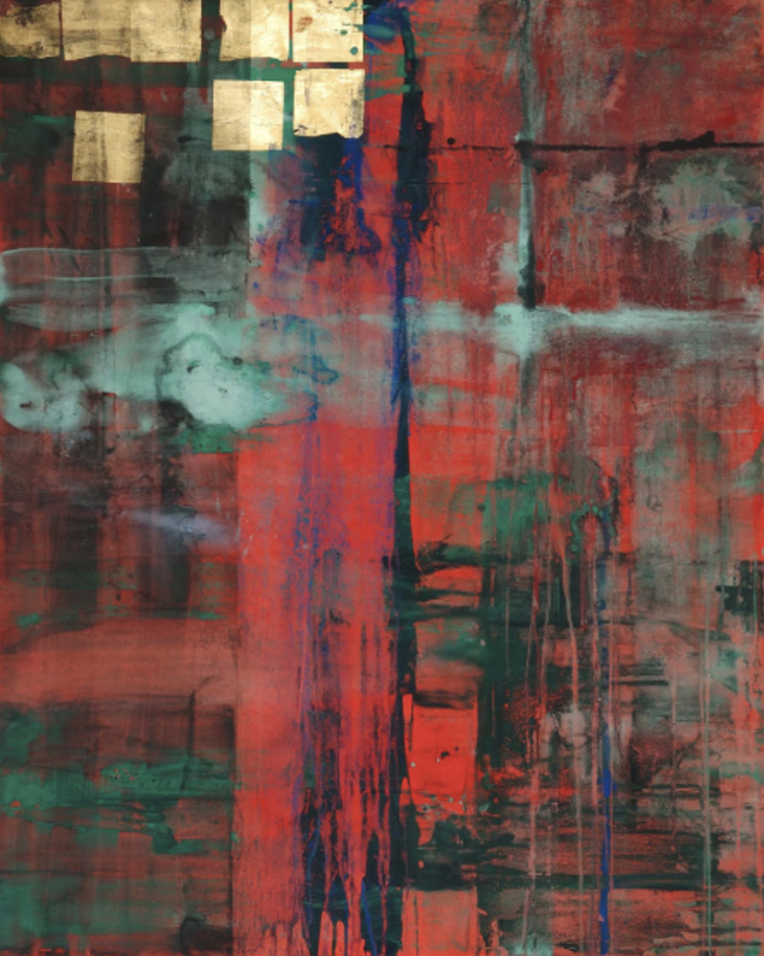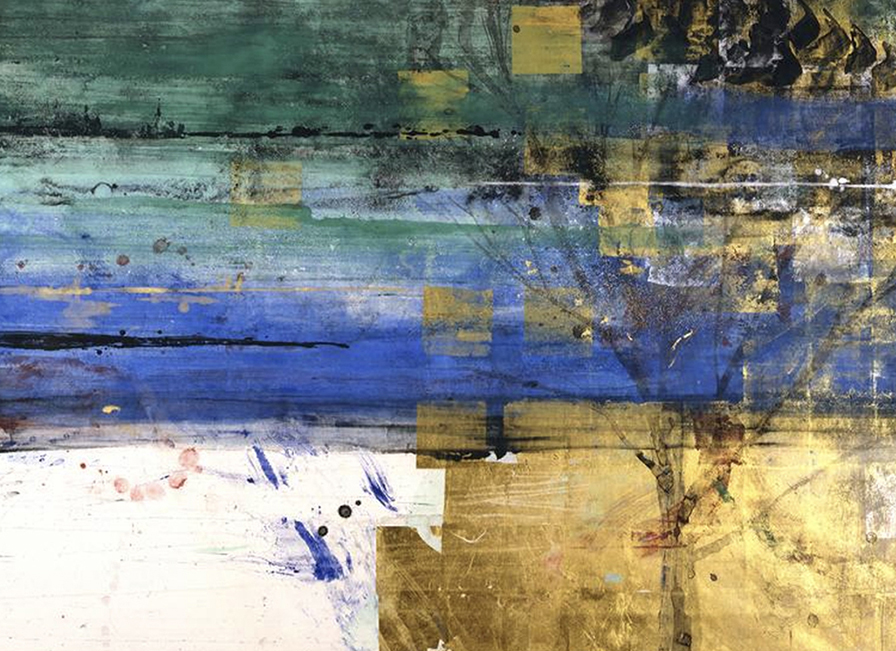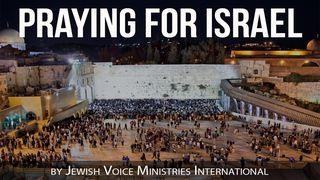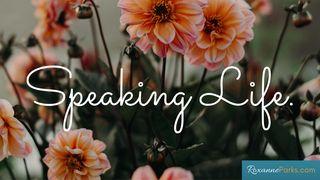Last Words: A Lenten Meditation on the Final Sayings of Christ, Week 3Sýnishorn

Grace

Grace Hour, Makoto Fujimura, 1999. Mineral pigments and gold on Kumohada paper, 157 x 122 cm.

Grace Tree, Makoto Fujimura, 1997. Mineral pigments, silver, and gold on Kumohada paper, 48 x 60 in.
“Marvelous Grace” from the album The Great Controversy. Composed by Julia Johnston (lyrics) and Daniel Towner (music). Performed by Fountainview Academy Choir and Orchestra.
Poetry:
“Exurbia”
by Mary Karr
In the predawn murk when the porch lights hang
on suburban porches like soft lemons
my love rides out in his black car.
His high beams stroke our bedroom wall.
Half awake, I feel watched over and doze
afloat in swirls of white linen.
Then he's at the Y in trunks I bought him
sleek as an otter, eyes open behind goggles.
He claws the length of his lane.
Oh but his flip turn makes of his body
a spear, and his good heart drubs.
We often call at odd hours from different
star points of the globe. But today
he'll stop home to deposit a hot coffee
on my bedside. For years I fought
moving to this rich gulag because I thought
it was too white or too right or too dumb, but
really, as Blake once said,
I couldn't bear the beams of love.
GRACE
The Apostle Paul was so amazed by the life-changing experience he had with the Lord, he sought a way to describe it as he wrote his letters to the fledgling churches and actually invented a new Greek word to describe it—grace. He used the word for gift (charisma) and shortened it into grace (charis). With this new word, there should be no doubt that God’s grace was a gift—not deserved, earned, or purchased.
Like the Apostle Paul, I have been aware of the beautiful gift of grace in my life. To me, God’s grace means forgiveness, cleansing, acceptance, and is a vivid expression of God’s love. It seems in our daily lives; we seldom see the giving of gifts that require nothing in return and are not dependent upon merit or have some reciprocity involved. But God’s grace is always freely given.
The creative offerings that accompany our Scriptures today underscore the power of such grace. The poet, Mary Karr, came to embrace God’s grace in her life journey which had taken her from alcoholism and agnosticism to the embracing of the Catholic faith. Her 2028 poetry collection, Tropics of Squalor, sought to address the numinous mystery of God. In today’s poem her description of what had taken place in her life seemed to overwhelm her as she writes, “I couldn’t bear the beams of love.” Such is grace.
In contrast, the accompanying music, the concept of grace is repeatedly celebrated with the lyricist repeating the word and declaring it to be “marvelous, abundant, and free.” Written at the turn of the 20th Century when women were prohibited from public ministry, Julia Johnston found her voice in writing more than five hundred hymns, but none were as lasting and meaningful than “Grace, Greater than All Our Sin.” Our churches continue to sing it today.
For me, the most powerful depiction of God’s free gift of grace is found in Makoto Fujimura’s series, Glimpses of Grace, of which we have two examples. The artist’s art form, Nihonga, has the ability to confront the viewer with both the immanence and transcendence of God. The crushing of semi-precious stones by the artist as he makes the paint, illustrates the death of our Savior and the costliness of grace. The many layers of luminous paint and the deep red color of the painting, Grace Hour, pictures atonement and redemption. Grace Tree expresses the divinity—God Himself—in the abundant use of gold pigment, as gold never changes or tarnishes. The artist intends to show us that grace is a gift, like the air we breathe, or the light we see. Such a gift is given freely by Almighty God, and it forever changes us, as it brings us into an intimate relationship with him.
In light of all we have considered from the Scriptures and the arts, I can only bow my head and earnestly say, ‘Thanks be to God for His grace, freely given to me.”
Prayer:
In all things, I give thanks to you, Father, for the gift of your grace in my life. I pray that this day will be filled with wonder and awe as I experience your love anew. In the name of Jesus Christ, I offer this prayer and ask that you guide my steps now and forevermore.
Amen.
From “A Morning Prayer on Grace” by Stephanie Reeves
Dr. Dianne Collard, D. Miss.
Alumna of Cook School of Intercultural Studies
Biola University
Founder of ArtsCharlotte in North Carolina
About this Plan

The Lent Project is an initiative of Biola University's Center for Christianity, Culture and the Arts. Each daily devotion includes a portion of Scripture, a devotional, a prayer, a work of visual art or a video, a piece of music, and a poem plus brief commentaries on the artworks and artists. The Seven Last Words of Christ refers to the seven short phrases uttered by Jesus on the cross, as gathered from the four Christian gospels. This devotional project connects word, image, voice and song into daily meditations on these words.
More








